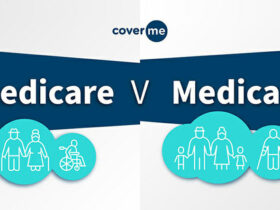INTRODUCTION
The security of Your future finances and health depends on planning for health insurance during retirement. As you go from employed life to retirement, it becomes necessary to have some understanding about your health insurance options and plan for illnesses. That’s where this guide comes in handy: It provides information you need to know about planning health insurance during retirement. It views this issue from various angles, examines the main considerations and presents options available to you
Understanding What Health Insurance You’re Going to Need during retirement
When your life changes from one of active work to inactivity, so do your health care needs. This is why it is crucial to have health insurance during your retirement years:
Increased Healthcare Costs: as you get older the chances of requiring medical care rise. This includes regular checkups, treatment for chronic illnesses, and emergency care.
Medicare Coverage: For people aged 65 and over, Medicare is their primary health insurance. However, it doesn’t cover everything and knowing what it does –&emyt; does not cover could make a big difference in plans.
Potential Coverage Gaps: Medicare has gaps in coverage and out-of-pocket costs that must be addressed by supplementary insurance or other means.
Types of Health Insurance for Retirees
There are several ways in which retirees can obtain insurance coverage for their health during retirement. Each option offers different benefits and considerations:
1. Medicare
Medicare is a federal health insurance program for people aged 65 and older, certain younger individuals with disabilities. It consists of various parts:
Medicare Part A: Covers hospital stays, skilled nursing care and hospice services, some home health care services also.
Medicare Part B: covers the cost of outpatient services, preventive care, doctor visits and medical supplies.
Medicare Part C (Medicare Advantage): This is a combination of Part A and Part B; it often includes added benefits such as vision or dental care.
Medicare Part D: Offers prescription drug coverage.
Pros: Provides complete coverage and is widely accepted by hospitals and physicians.
Disadvantage: You have to pay out more for the premiums, deductibles, and co-payments without every service being covered.
2. Medigap (Medicare supplemental insurance)
These policies are offered by private insurance companies to help fill in the gaps not covered by Medicare. These may include:
Deductibles
Coinsurance
Copayments
Pros: Reduces out-of-pocket costs and adds extra coverage over what Medicare provides.
Cons: Additional premiums are needed and the plan varies.
3. Employer Retiree Health Insurance
As benefits to them their workers may need some employers offer insurance for retirees.
Exactly what kind of coverage such plans provide and what their out-pocket costs may be is wide ranging. Pros:
It may be more comprehensive in coverage than individual plans and could work out to cost less.
Cons: Some employers do not offer this benefit; others change it over time so that the retiree suffer a loss of cover.
4. Individual Health Insurance Plans
For people who are not eligible for Medicare or prefer alternative solutions, individual health insurance plans are available through the Health Insurance Marketplace.
Pros: Offers flexibility in plan choice and coverage level.
Disadvantage: Costs can be high, and coverage may not be as comprehensive as with Medicare.
Key issues to consider in health insurance planning during retirement are:
1. Project Future Health Care Costs
Based on your current health status, family medical history and possible health care needs in the future, estimate how much it will cost you. This will help in choosing which insurance plan is right for you and preparing financially to meet possible expenses.
2. Date of Medicare Enrollment
Sign up for Medicare during the so-called “initial enrollment period,” which begins three months before you turn 65 and ends three months afterwards. Any further delay can lead to penalties or periods during which you are not covered.
3. Compare Medigap Options It is wise to compare the various Medicare Supplement Insurance (Medigap) plans before making a choice. As these plans are different in terms of coverage and cost, choose a plan that meets your health-care needs and budget 3D version │ Is educational software.
4. Look into Long-Term Care Insurance Long-term care insurance pays for services such as nursing home care or in home caregivers that are not usually covered by Medicare. You might want to take this approach if you think there’s a chance that you will require long-term medical care in the future.
5. Allow for the Cost of Drugs in Your Budget Make sure that your plan includes sufficient cover for prescription drugs. If you are in Medicare, examine the Part D plan that you are currently enrolled in, or consider joining a Medicare Advantage scheme where the cost of drugs is included in the coverage.
Tips for Managing Healthcare Costs in Retirement Managing healthcare costs effectively can be a financial bulwark in retirement. Make or break: It’s your choice.
1. Put in Your Budget for Healthcare Costs Set up a budget incorporating estimated healthcare costs: regular contributions, annual deductibles and any money over these limits. This helps with managing one’s financial affairs and keeps an eye out for unexpected medical bills.
2. Keep Fit and Well A healthy lifestyle can reduce the need for medical treatment and lower healthcare costs. To avoid health problems, focus on preventive care (getting regular checkups and vaccinations) as well as exercise during the day; what you eat at every meal matters too normally health skipping lunch some people will feel better in this moment on account of limited resources Five or ten years down the road is another matter.
3. Review Coverage Every Year in January, compare health insurance needs and policy options. Check your health insurance plan to make sure it still meets your needs adequately. If it does not, think about changing it.
4. Investigate Funding Some people have access to financial assistance programs, such as state health care programs or relief for low-income individuals. If you need help with the cost of medicine.
Conclusion: Preparing for Health Insurance in Retirement
To have a healthy and financially sound retirement, it is crucial to carefully plan your health insurance for your retirement. Understanding Medicare, considering other plans such as Medigap, and preparing for future healthcare expenses will enable you to make informed decisions about your healthcare needs in retirement. Plan ahead for the best possible coverage and peace of mind for your future.


















Leave a Reply